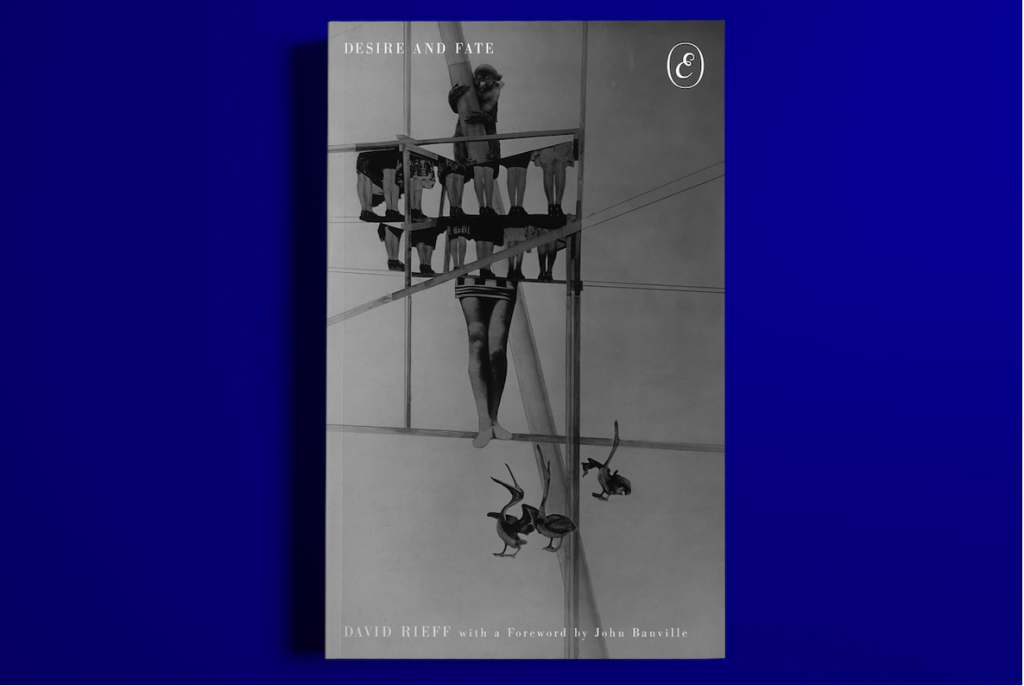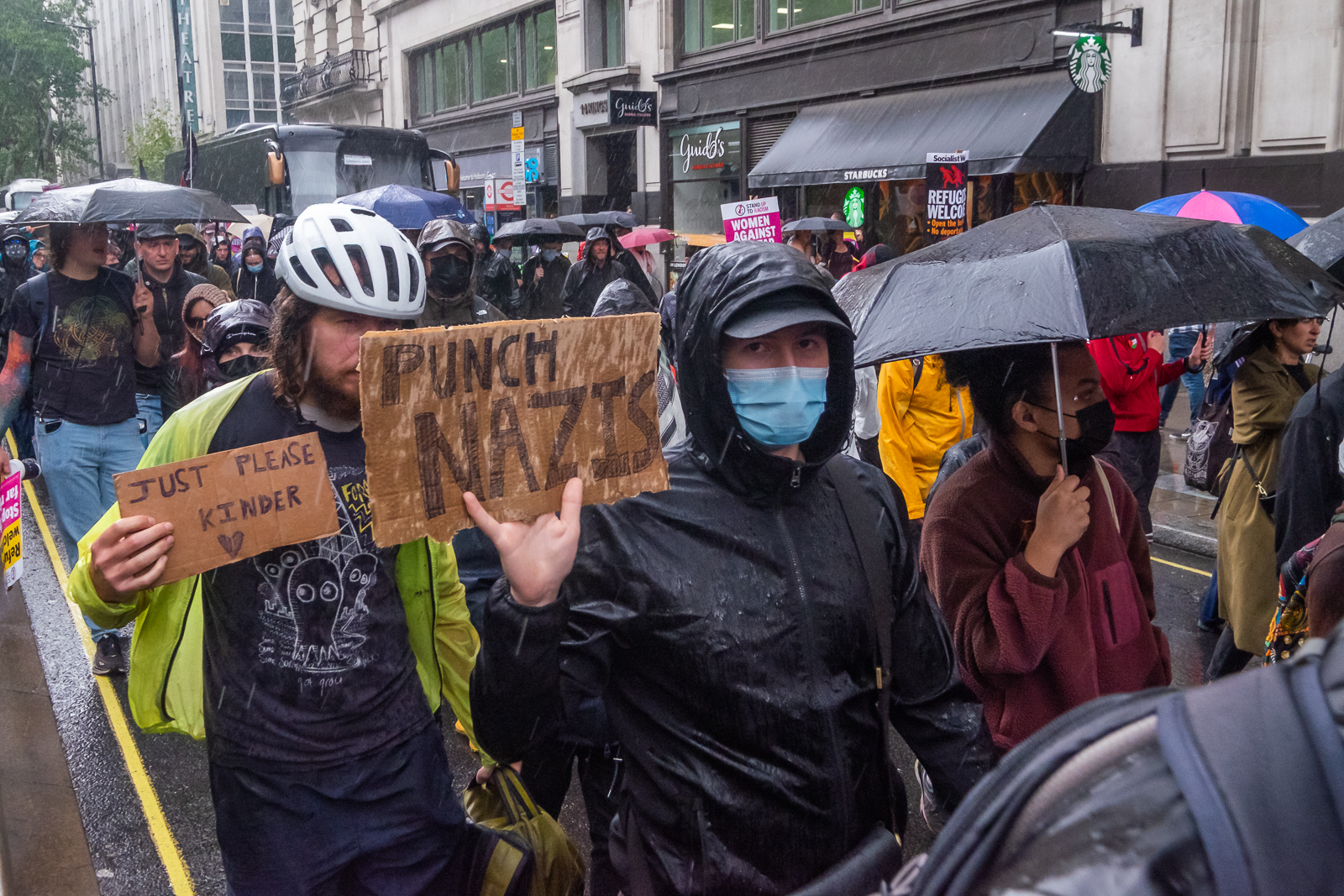Instead of a coherent critique of woke culture, we get a confused, grudge-laden screed that fails to balance the left’s internal contradictions with any meaningful analysis
~ John Henri Nolette ~
As a semi-sympathetic critic of both “woke” and “anti-woke” narratives, I had high hopes for this book. I was on board with his basic thesis: the tedious, cartoonish quality of left- and right-wing moralism has reduced important cultural criticism to simplistic caricature and hyperbole. An anarchist – or even a generically radical – conversation about how to effectively remedy this problem is long overdue.
Rieff’s commentary on the selling of rebel identity through marketed outrage is on point. But he doesn’t deliver a particularly radical analysis, despite his history as a serious critic with a culturally leftist pedigree. Conspicuously, Rieff is reluctant to acknowledge that what gets called “wokeness” was born as a legitimate response to a ruthless and demeaning racist and sexist social order.
Rieff complains about how universities are being run like corporations instead of institutions of higher learning, but it quickly starts to sound like sour grapes. The hyperbolic anti-intellectualism of the Right is painful to behold, and its consequences devastatingly real – but he doesn’t discuss any of that, no sir. Reiff, an Amherst/Princeton graduate, shouldn’t have to suffer a president who puts ketchup on his steak. Rieff repeatedly laments the illiteracy of the ruling elites; better that our overlords read Chaucer than if they watch monster truck pulls?
Reiff makes it sound like woke commentators fixated on race are wrong because racism isn’t all that meaningful a social force because economic structures are more powerful. There’s a critique to be made of peddling white guilt but… ignoring racism ain’t it. Rieff is inexplicably eager to remove sexism/racism from the cultural conversation entirely.
After dancing around angrily for 50-plus pages, he finally comes out and says what he wants: a reinvigorated late-20th century liberalism a la one of America’s first public intellectuals and close adviser to JFK: Harvard’s own Arthur Schlesinger, Jr. This is disappointing for many reasons, but it’s also consistent with Rieff’s sentimental backward glances to an idyllic past, when liberals were fierce and conservatives feared them. One thinks immediately of the author’s own mother, Susan Sontag.
Her highly influential “Against Interpretation”, “Illness as Metaphor”, and “Styles of Radical Will” permanently cemented her liberal/progressive bona fides in the field of cultural criticism. Readers aware of this kinship might therefore be prompted to understand Rieff’s indictment of Woke as an internal critique, a kind of constructive criticism. And yet his attacks feel too weirdly personal. The repetitive quality of his harping (both circular and scattered) suggests some unsorted emotion that never gets named. As a sympathetic reader of social critique, and, perhaps more importantly, a fan of his mother’s writing, I found his grudge-based style off-putting.
If he’s so obsessed with resuscitating his battered and besmirched liberalism, why not mine Wokeness itself? Surely there’s something of use in there, some sliver of integrity he can expound upon, however critically. Plenty of Woke concepts are profoundly interesting, while also being liberal-friendly in their orientation. Rieff’s stated objection to (institutional?) wokeness is that it fixates on categories (race, gender, sexual orientation) which obscure the inequities of class. This has been the danger with wokeness from the start. That discussions of class in America might be buried or redirected (yet again) in favour of some less-resounding critique has been the bane of American life since my great grandfather’s time. Class war radicals have consistently alerted us to this.
I was born in 1971, but even I know the 1960s counterculture (even its milder manifestations) met huge resistance from almost every corner of institutional America. McCarthyism didn’t end in the 60s, it just changed shape; reverberations of the Red Scare lasted for decades, and can still be felt today, albeit in an updated form. David Rieff was alive for much of this (which his own famous mother amply documented) and yet he appears to have completely forgotten the homicidal racism that created the Civil Rights movement, and the suffocating misogyny which gave rise to (for all its flaws) Second Wave feminism. The exposure of COINTELPRO, assassinations of politically troubling individuals, and CIA dirty tricks that plagued the feminist, black liberation, gay liberation and anti-war movements play no part in his analysis. This profound official (and unofficial) undermining of progressive movements is the context that gave new life to the phrase “Stay Woke”. Rieff, however, appears to have deleted all this context from his brain.
As much as he loves to announce the “failure of woke” every six or seven pages, the complicated truth is that Woke has been quite successful, though not in the tyrannical hegemonic way Rieff claims. Woke consciousness has permeated film, music, literature, politics, and education in an unavoidable way, perhaps since the early days of Black Lives Matter and #MeToo, if not before that. The actual phrase “stay woke” can be traced back to the Leadbelly song “The Scottsboro Boys”, popular in the 1930-40s, and has been a watchword in Black culture ever since.
“Stay Woke” is shorthand for “stay alert to systemic racial discrimination and bigotry”. For Rieff, Woke is everywhere and nowhere. Like Schrödinger’s cat, Woke is both taking over the world and a dismal failure.
His chief concern is that these young wokesters will simply become the new managers of the global capitalist death machine, infusing the same old ruthless Kissinger-style geopolitical manoeuvring with a fresh coat of multikulti paint: offering trigger warnings, promoting racial equity, and insisting on queer-friendly language, all while leaving the primary mechanisms of domination and exploitation untouched. As such, he comes close to an anarchist critique of wokeness. And yet when he elaborates on it, he loses me every time. His extrapolations of this thesis just don’t add up to his purported grievance. This is quite a rhetorical trick. Sadly unimpressive, it’s bizarre to read a book so out of step with itself.
Rieff loves to call out the “woke identitarians” on the Left but has nothing critical to say about the same phenomenon on the right. If he is truly calling out identitarians in a non-partisan way, then where is the chapter (or even paragraph?) about the men’s rights crowd, the Straight Pride goofs, the Proud Boys, western chauvinists, or the white nationalists? In a book about the cultivated fragility of identity politics and the weaponisation of feeling offended, this is a glaring and inexcusable omission. He speaks of cancel culture as if only the Left have done it. Surely he must be aware that the right also live in a swamp of moral indignation, trying to cancel drag queen storytelling, Disney products, Taylor Swift, etc.
The Left needs an internal critique of the errors of woke. I was excited about this book because Rieff seemed to be the guy to do it. Despite his best efforts at maintaining something like academic objectivity, however, Reiff’s screed is confused, angry, and poorly argued. The yammer of a million right wing podcast bros criticising Woke is predictably foolish, knuckleheaded, and unlistenable. But the glaring lack of voices on the left critiquing its own use of wokeness, cancel culture, and tokenistic inclusion is equally foolish, self-destructive and, like this book, painfully inept. Sadly, the high expectations I had were quickly dashed, one might even say toppled: roped, wrangled, and brought down with a resounding crash, not unlike a Confederate statue tumbling onto a college quad.
Desire and Face, by David Rieff. Eris press, 2024. 260 pp. ISBN: 9781912475384








